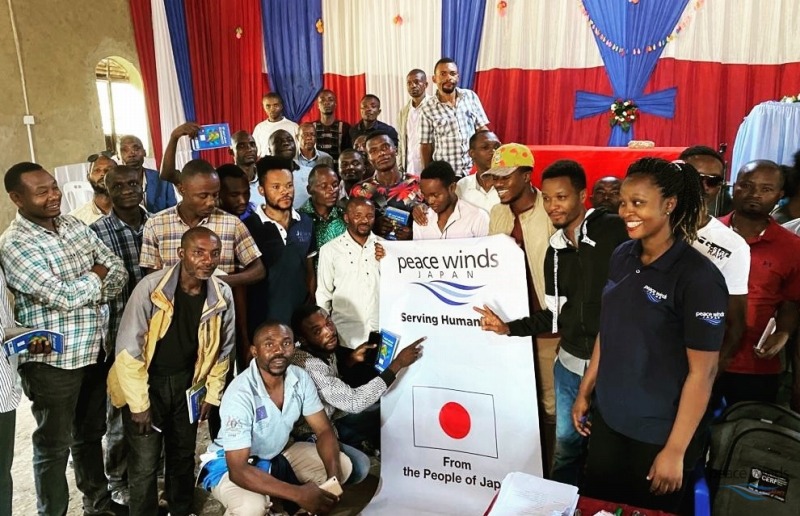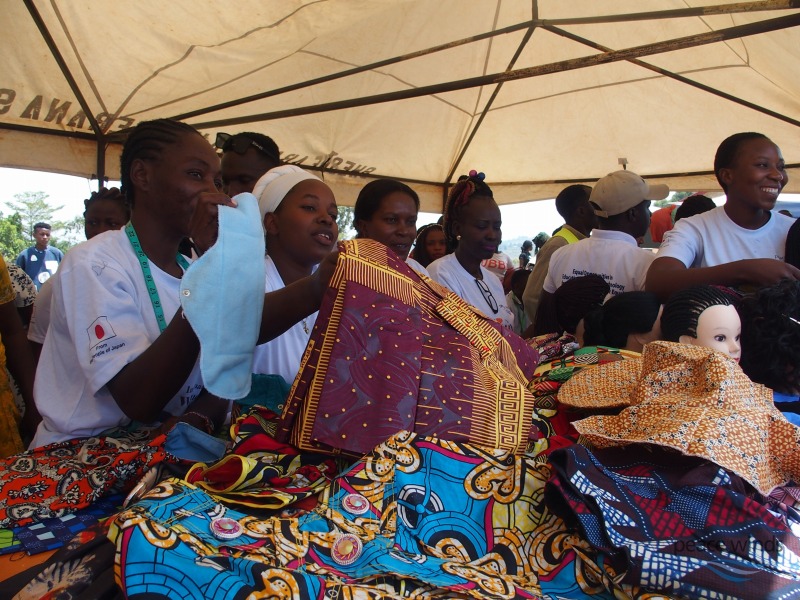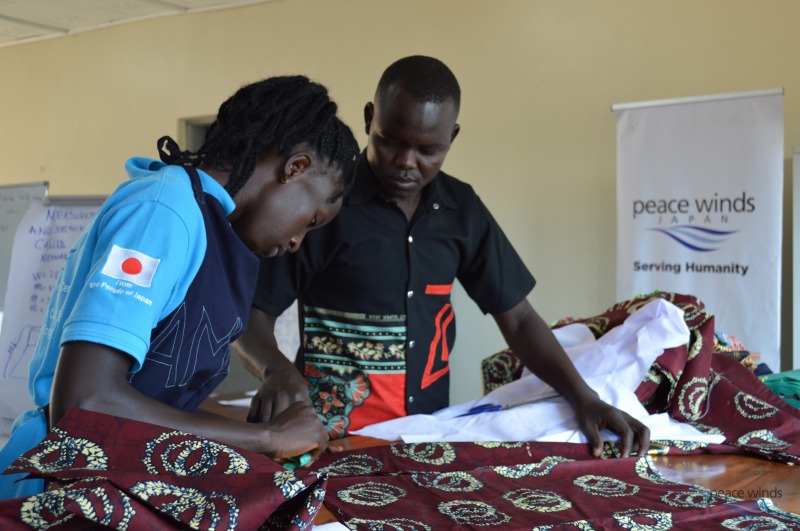Supporting Independence for Refugee Women in Uganda
More than 240 women living in and around Uganda’s Chaka II and Invepi refugee settlements have recently completed vocational training courses at Peace Winds’ support centers for women. Course topics include sewing, hairdressing, and soap-making and are aimed at strengthening independence and safety for women living in the camps and surrounding host communities.
In addition to technical training, these courses provide women with business skills that help support their economic and social independence. Course participants learn about business literacy and accounting, take official exams in their subject areas, and sell their products at local markets and events. All of this practice helps refugee women gain the confidence they need to work for other vendors or start their own businesses.
The women’s centers themselves also help create independence in the refugee community. The centers are run by a management committee which is made up of refugees and host communities residents, while Peace Winds staff members teach the training courses and support the management committee as needed.
Peace Winds’ activities for refugee women in Uganda also work to improve the community’s awareness of gender-based violence (GBV) and hygiene, including menstrual hygiene, for both men and women. In addition to providing education about these topics at the community centers for women and their families, instructors visit schools in the area to discuss GBV prevention and menstrual hygiene. Peace Winds hopes that by allowing both men and women, especially younger community members, to openly discuss menstruation and the warning signs of GBV, they will create a safer environment for female refugees and dispel some of the superstitions that surround menstrual health in Uganda.
By March 2023, about 12,800 refugees and host community residents had used the women’s support centers. These women say that Peace Winds’ training courses have helped them build a tight-knit environment where they belong outside of their homes, allowing them to engage with the community and gain confidence by expressing their opinions. Peace Winds is proud to support Uganda’s refugees and host communities in building these connections.
This project is supported by Japan’s Ministry of Foreign Affairs and by the generous support of our donors. Peace Winds’ thanks you for your continued support.


